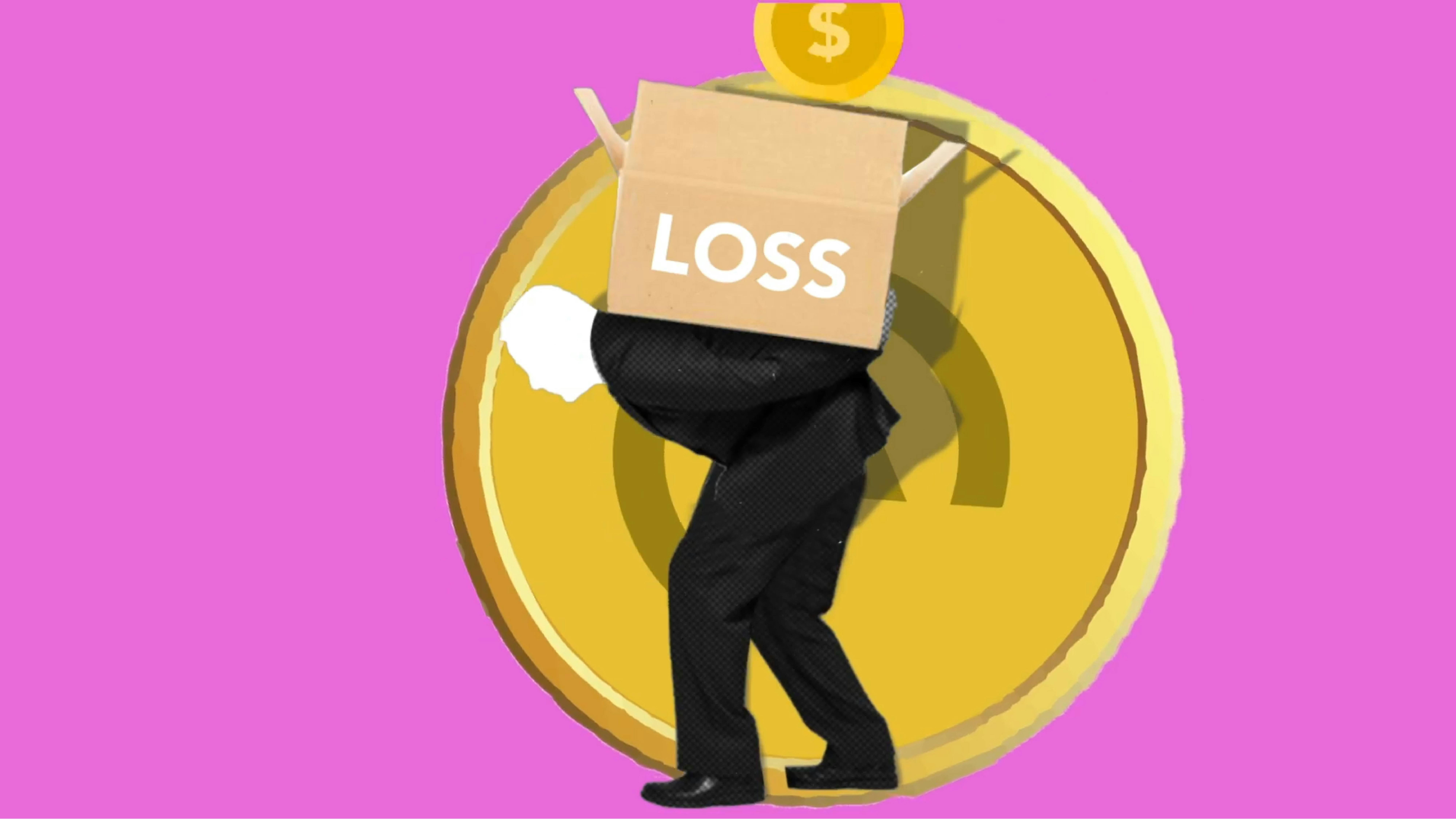How to Consolidate Bad Credit Debt
If you're feeling overwhelmed by your bad credit debt and looking for a way to simplify your financial situation, debt consolidation might be the answer you need. By combining multiple debts into a single loan, you can streamline your debt management process and possibly even lower your interest rates. How does it work, you ask? Well, there are a couple of ways to go about it. One option is to take out a personal loan and use the funds to pay off your existing debts, while another is to transfer your debt to a balance transfer credit card with a low introductory interest rate. With a little bit of research and careful planning, you can ease the burden of bad credit debt and work towards a brighter financial future.
1. Understanding Bad Credit Debt Consolidation
1.1 What is Bad Credit Debt Consolidation?
Bad Credit Debt Consolidation refers to the process of combining multiple debts into one loan, specifically designed for individuals with a bad credit score. It is an effective solution for individuals who are struggling to make multiple debt payments and want to simplify their financial situation.
1.2 Why Consolidate Bad Credit Debt?
Consolidating bad credit debt can provide several benefits. Firstly, it allows you to streamline your debt payments by combining multiple debts into one. This means you only have to make a single monthly payment instead of managing multiple payments. Additionally, by consolidating your debt, you may be able to secure a lower interest rate, which can potentially save you money in the long run.
1.3 Benefits of Bad Credit Debt Consolidation
There are several benefits to consolidating bad credit debt.
-
Simplified Debt Management: Consolidating your debt allows you to combine all your payments into one, making it easier to keep track of your finances. It eliminates the hassle of managing multiple due dates and amounts.
-
Potentially Lower Interest Rates: One advantage of bad credit debt consolidation is the possibility of obtaining a lower interest rate. This can result in significant savings over time, especially if your existing debts have high interest rates.
-
Improved Credit Score: By making regular payments on your consolidated loan, you have the opportunity to rebuild your credit score. Regular, timely payments showcase your financial responsibility and can help improve your creditworthiness over time.
-
Reduced Stress: Managing multiple debts can be overwhelming and stressful. By consolidating your debts, you can alleviate the stress associated with multiple payments and simplify your financial situation.
2. Assessing Your Financial Situation
2.1 Evaluating Your Debt
Before embarking on a bad credit debt consolidation journey, it's crucial to evaluate your existing debt. Take stock of all your outstanding debts, including credit card balances, personal loans, and any other forms of debt. Make a list of the outstanding balances, interest rates, and monthly payment obligations.
2.2 Reviewing Your Credit Score
Bad credit debt consolidation is specifically designed for individuals with less-than-perfect credit scores. However, it's essential to have a clear understanding of your credit score before moving forward. Obtain a copy of your credit report and review it for accuracy. Identify any errors and take the necessary steps to rectify them.
2.3 Determining Your Repayment Ability
Assessing your repayment ability is crucial when considering bad credit debt consolidation. Take a close look at your monthly income, expenses, and existing debt obligations. This evaluation will help you determine how much you can afford to pay towards your consolidated loan each month. It's important to be realistic and ensure that the repayment amount fits comfortably within your budget.

This image is property of images.pexels.com.
3. Exploring Debt Consolidation Options
3.1 Personal Loan
A personal loan is a common option for consolidating bad credit debt. It involves taking out a new loan to pay off your existing debts. This consolidation strategy allows you to combine multiple debts into a single monthly payment with a potentially lower interest rate. Personal loans are typically unsecured, meaning they don't require collateral.
3.2 Balance Transfer Credit Card
Another option for bad credit debt consolidation is transferring your existing debt to a balance transfer credit card. These credit cards typically offer a low or 0% introductory interest rate, allowing you to save on interest payments during the introductory period. However, it's essential to carefully review the terms and conditions, as these introductory rates are temporary, and high-interest rates may apply after the introductory period.
3.3 Home Equity Loan
If you own a home and have built up equity, a home equity loan may be a viable option for consolidating your bad credit debt. A home equity loan allows you to borrow against the equity in your home and use the funds to pay off your existing debts. This option often provides lower interest rates, as the loan is secured by your property. However, it's crucial to weigh the risks carefully, as defaulting on the loan could result in the loss of your home.
3.4 Debt Management Plan
A debt management plan involves working with a credit counseling agency to create a repayment plan for your debts. They negotiate with your creditors to potentially reduce interest rates and create a more manageable payment plan. This option allows you to consolidate your debt into a single monthly payment to the credit counseling agency, which is then distributed to your creditors.
3.5 Debt Consolidation Loan
A debt consolidation loan is a specialized loan designed explicitly for consolidating multiple debts. These loans are available through various lenders and can be used to pay off your existing debts. Debt consolidation loans often have more lenient eligibility requirements, making them accessible to individuals with bad credit. However, it's essential to carefully review the terms and interest rates offered to ensure it's the right option for you.
3.6 Credit Counseling
Credit counseling involves working with a professional credit counselor who can provide guidance on debt management and consolidation options. They can help evaluate your financial situation, provide budgeting advice, and recommend appropriate debt consolidation strategies. Credit counseling can be a valuable resource for individuals navigating bad credit debt consolidation, offering personalized support and advice.
4. Choosing the Right Debt Consolidation Option
4.1 Comparing Interest Rates
When considering different debt consolidation options, it's crucial to compare the interest rates offered. A lower interest rate can significantly impact your ability to repay your debt and save money over time. Carefully review the terms and conditions of each option to understand the interest rates and any potential changes or fees that may apply.
4.2 Analyzing Loan Terms and Fees
In addition to interest rates, it's important to analyze the loan terms and fees associated with each debt consolidation option. Look for any hidden fees, such as origination fees or early repayment penalties. Consider the repayment term and monthly payment amount to ensure it aligns with your budget and financial goals.
4.3 Assessing Eligibility Requirements
Different debt consolidation options have varying eligibility requirements. Ensure that you meet the criteria for each option before proceeding. Some options may have more flexible requirements for individuals with bad credit, while others may have stricter criteria. It's crucial to understand these requirements to avoid wasting time on options that may not be suitable for your situation.
4.4 Considering Repayment Period
The repayment period is an essential factor to consider when choosing a debt consolidation option. Longer repayment periods may result in lower monthly payments but may also extend the duration of your debt. Determine what repayment term works best for your financial goals and your ability to pay off your debt in a reasonable timeframe.
4.5 Seeking Professional Advice
If you're unsure which debt consolidation option is right for you, it's wise to seek professional advice. Credit counselors or financial advisors can provide personalized guidance based on your unique financial situation. They can help you navigate the various options, understand the pros and cons, and guide you towards the most suitable solution.

This image is property of images.pexels.com.
5. Applying for a Bad Credit Debt Consolidation
5.1 Gathering Necessary Documents
Before applying for a bad credit debt consolidation, gather all the necessary documents. These may include proof of income, identification, recent bank statements, and any other documentation required by the lender or credit counseling agency. Having these documents prepared will streamline the application process.
5.2 Researching Lenders
If you're opting for a personal loan or a debt consolidation loan, it's important to research different lenders. Compare their interest rates, terms, and fees to find the one that best suits your needs. Look for reputable lenders who specialize in bad credit debt consolidation and have positive customer reviews.
5.3 Completing the Application
Once you've chosen a lender or credit counseling agency, complete the application form. Ensure that you provide accurate and up-to-date information. Double-check the application before submitting to avoid any errors or omissions that could delay the approval process.
5.4 Submitting Required Information
In addition to the application form, you may be required to submit supporting documents as per the lender's or credit counseling agency's requirements. Follow their instructions and provide any additional documentation promptly. This will help expedite the review and approval process.
5.5 Waiting for Approval
After submitting your application and supporting documents, patiently wait for the approval decision. The timeframe for approval can vary depending on the lender or credit counseling agency. However, if you've prepared all the necessary documents and provided accurate information, the approval process should proceed smoothly.
6. Consolidating Bad Credit Debt with a Personal Loan
6.1 Finding a Lender
Start by researching lenders who specialize in bad credit debt consolidation personal loans. Look for lenders with competitive interest rates, favorable terms, and positive customer reviews. Consider both traditional banks and online lenders to ensure you find the best option for your needs.
6.2 Calculating Loan Amount
Once you've chosen a lender, calculate the amount you need to borrow. This should match the total outstanding debt you wish to consolidate. Consider any additional fees or charges when determining the loan amount.
6.3 Negotiating Interest Rates
If possible, try negotiating the interest rate offered by the lender. Having a good credit history may provide leverage in these negotiations. Share your commitment to improving your financial situation and explain how consolidating your bad credit debt will benefit both parties.
6.4 Repaying Your Existing Debts
Once your personal loan is approved, use the funds to pay off your existing debts. Make payments directly to your creditors to ensure that your outstanding balances are cleared. Keep track of all payments made and retain proof of payment for your records.
6.5 Managing the New Loan
Now that you've consolidated your bad credit debt with a personal loan, it's important to manage the new loan responsibly. Make timely payments each month to avoid late fees and maintain a positive payment history. Consider setting up automatic payments to ensure consistency and avoid accidentally missing a payment.

This image is property of images.pexels.com.
7. Transferring Bad Credit Debt to a Balance Transfer Credit Card
7.1 Researching Balance Transfer Credit Cards
To transfer your bad credit debt to a balance transfer credit card, start by researching different credit card options. Look for cards that offer a low or 0% introductory interest rate specifically for balance transfers.
7.2 Evaluating Introductory Interest Rates
Carefully evaluate the introductory interest rate offered by each balance transfer credit card. Consider the duration of the introductory period, as well as the interest rate that will apply after the promotional period ends. This will help you determine if the card is a suitable option for consolidating your debt.
7.3 Calculating Balance Transfer Fees
In addition to the interest rate, consider any balance transfer fees that may apply. Some credit cards charge a percentage fee on the total transfer amount. Calculate these fees and compare them across different cards to find the most cost-effective option.
7.4 Transferring Your Debts
Once you've chosen a balance transfer credit card, contact the card issuer to initiate the transfer of your existing debt. Provide the necessary information, including the account details and outstanding balances for each debt you wish to transfer. Follow any additional instructions provided to ensure a smooth transfer process.
7.5 Managing the Balance Transfer Card
After your debt has been transferred to the balance transfer credit card, it's crucial to manage the card responsibly. Make the monthly minimum payment on time and avoid using the card for new purchases, as this could increase your debt load. Pay close attention to the end of the promotional period and be prepared for any changes to the interest rate.
8. Exploring Home Equity Loans for Bad Credit Debt Consolidation
8.1 Understanding Home Equity Loans
A home equity loan allows homeowners to borrow against the equity they have built up in their property. This type of loan is secured by the home itself, making it a viable option for individuals with bad credit who may not qualify for unsecured loans. It's important to understand the terms and repayment requirements associated with home equity loans.
8.2 Assessing Your Home's Equity
To determine if a home equity loan is a viable option for debt consolidation, assess the equity you have in your home. This can be calculated by subtracting the outstanding mortgage balance from the current market value of your property. Ensure that you have sufficient equity available to secure a loan large enough to consolidate your debts.
8.3 Calculating Loan Amount
Once you've determined your home's equity, you can calculate the loan amount you can potentially secure. Keep in mind that lenders typically limit the loan-to-value ratio, meaning they won't allow you to borrow the full value of your equity. Calculate a realistic loan amount based on this limitation.
8.4 Evaluating Interest Rates
When considering a home equity loan for bad credit debt consolidation, carefully evaluate the interest rates offered by different lenders. Compare these rates to the rates associated with your existing debts to determine if you can secure a lower interest rate through consolidation.
8.5 Managing the Home Equity Loan
Once you've secured a home equity loan to consolidate your bad credit debt, it's essential to manage the loan responsibly. Make regular monthly payments on time to avoid defaulting on the loan. Additionally, avoid accumulating new debt while repaying the home equity loan to prevent further financial strain.

9. Seeking Professional Help Through Credit Counseling
9.1 Finding a Reputable Credit Counseling Agency
If you feel overwhelmed or uncertain about consolidating your bad credit debt independently, consider seeking professional help through a reputable credit counseling agency. Research agencies that specialize in helping individuals with bad credit and look for accreditation or certification from reputable organizations. It's essential to choose a well-established agency with a proven track record of success.
9.2 Determining Eligibility for Credit Counseling
Before pursuing credit counseling, determine if you are eligible for their services. Most credit counseling agencies accept clients based on their willingness to make consistent payments and participate actively in the program. Even if you have bad credit, you may still qualify for credit counseling assistance.
9.3 Creating a Repayment Plan
Once you've chosen a credit counseling agency, they will work with you to create a tailored repayment plan. This plan will outline the amount you need to pay each month and the duration of the program. The agency will negotiate with your creditors to potentially reduce interest rates and create a more manageable repayment structure.
9.4 Negotiating with Creditors and Lenders
During the credit counseling process, the agency will act as an intermediary between you and your creditors or lenders. They will negotiate on your behalf to potentially reduce interest rates, waive fees, or create more affordable repayment terms. This can help alleviate financial strain and make your debt more manageable.
9.5 Following the Credit Counseling Program
Once you've enrolled in a credit counseling program, it's crucial to follow the program diligently. Make the agreed-upon monthly payments to the credit counseling agency on time, and communicate any changes in your financial circumstances promptly. By following the program as advised, you'll be on the path to debt consolidation and improved financial stability.
10. Sticking to Your Debt Consolidation Plan
10.1 Tracking Monthly Payments
As you move forward with your chosen debt consolidation option, it's important to track your monthly payments. Monitor your payment schedule and ensure that you make payments on time to avoid any negative consequences. Stay organized and keep a record of your payment history for future reference.
10.2 Setting Up Automatic Payments
To simplify the payment process and ensure consistency, consider setting up automatic payments for your consolidated debt. Most lenders and credit counseling agencies offer this option, allowing you to schedule regular payments directly from your bank account. This minimizes the risk of missing a payment and helps you stay on track with your debt consolidation plan.
10.3 Budgeting and Saving
To make the most of your debt consolidation plan, it's important to budget wisely and save where possible. Review your monthly expenses and identify areas where you can make cuts or adjustments. Allocate a portion of your income towards savings to ensure you have a financial cushion in case of emergencies or unexpected expenses.
10.4 Avoiding New Debts
While working towards debt consolidation, it's crucial to avoid accumulating new debts. Practice financial discipline and avoid unnecessary spending that could derail your progress. Stick to your budget and focus on repaying your consolidated debt until it's fully eliminated.
10.5 Seeking Financial Education
To maintain long-term financial health, it's beneficial to seek financial education and constantly improve your knowledge of personal finance. Attend workshops, read books, and follow reputable financial resources to gain insights into budgeting, saving, and managing debt. Continuously educating yourself will empower you to make informed financial decisions and avoid falling back into bad credit debt.

Comments
Post a Comment